Stefan Zinn
Author: Julia Mehrmann, Antonia Voll und Manfred Brösamle-Lamprecht

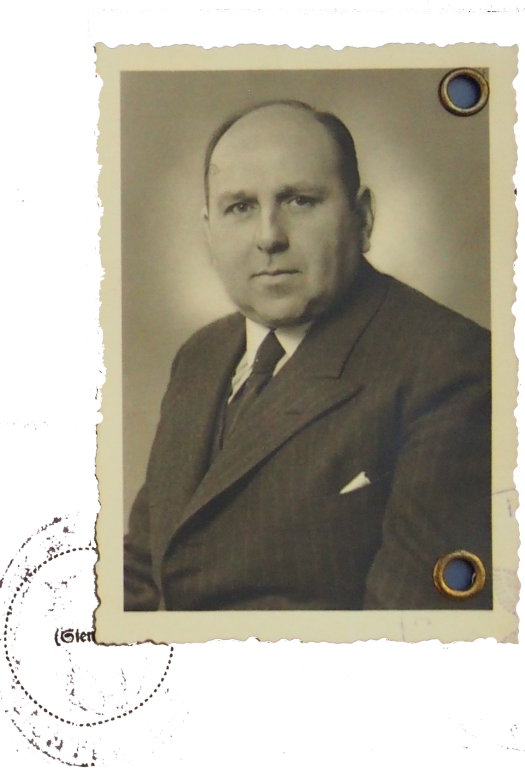
Stefan Zinn was born as the second son of the basket dealer Sigmund Zinn and his wife Doris, née Hopfmann, on September 13, 1890 in Lichtenfels.
Stefan's grandfather Samuel was one of the founders of the later flourishing Lichtenfels basket trade, which brought wealth to the Zinn family. The basket trade, which was known far beyond the regional borders, had its headquarters at Bahnhofstr. 5 in Lichtenfels.
Growing up to be the heir of the company
Samuel Zinn's son Sigmund was a very active person in his hometown. He held leading positions in both the fire department and the gymnastics club and was highly respected.
Stefan Zinn received a good school education, learned English and French before working as a merchant for his parents' company. During World War I, he was drafted into military service in April 1915. Initially an infantryman at the front, he soon served as a clerical assistant and then as an interpreter in the Würzburg prisoner-of-war camp.
Factory director
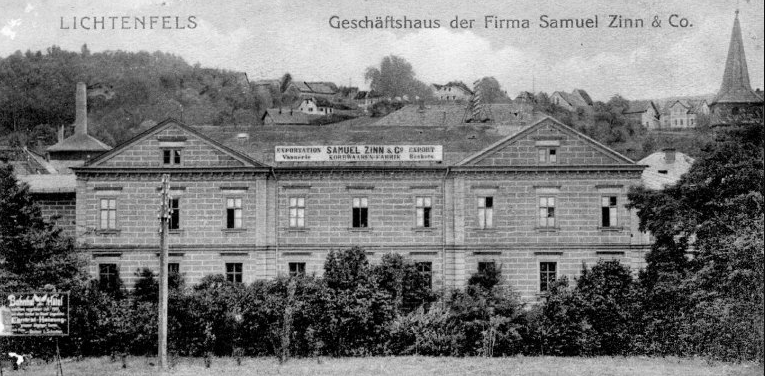 © City Archive Lichtenfels
© City Archive Lichtenfels
Probably in the early 1920s, Stefan and his brother Paul, who was three years older, took over the management of the company.
On February 1, 1925, Stefan married Berta Steinhäuser, 14 years his junior, the daughter of a wealthy Jewish merchant from Bayreuth, who came from Burgkunstadt. Five years later, on February 5, 1930, their first and only daughter Lieselotte was born.
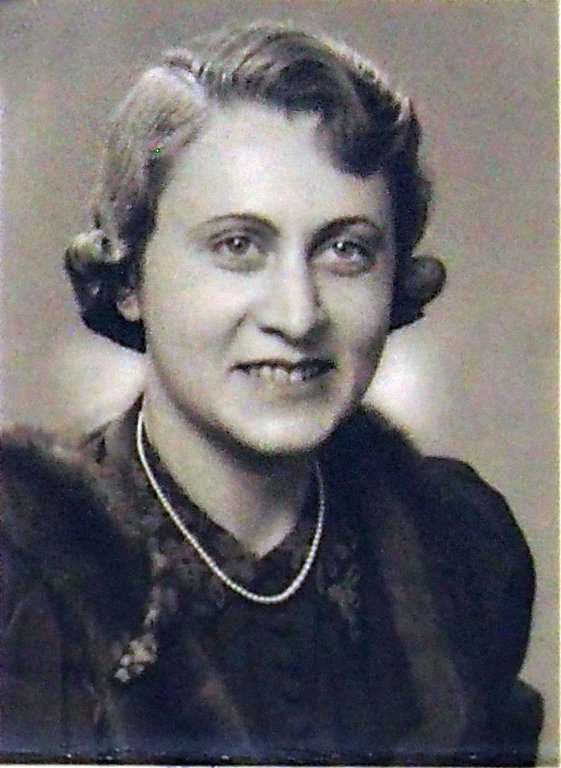

Together with the brother's family, the family lived in a prestigious villa near the company building (today: Café Herold's).
Nazi terror from 1933 on
Their social and economic position did not protect the family from the increasing Nazi terror. As early as 1937, Stefan Zinn traveled to the U.S. with Alfred Marx to explore possibilities for escape and life.
During the November pogroms in 1938 ("Reichskristallnacht"), organized Nazi thugs entered the home and business premises and devastated what they found. Daughter Lieselotte hid in the attic that night. Stefan Zinn was arrested without cause and sent to Dachau concentration camp for three weeks of "protective custody." Stefan's brother Paul took poison under the pressure of Nazi terror on November 10 and died a few days later in Hochstadt Hospital.
The company was dissolved under Nazi pressure, and Stefan Zinn was forced to sell the family's real estate far below its value.
Stefan and Berta drew the consequences: First, they brought their child to safety by sending Lieselotte to personally unknown relatives in New York. On April 22, 1939, Stephan and Berta Zinn were able to embark on the "Nieuw Amsterdam" in Southampton and met their daughter again in New York in May.
New York: "Baskets of every description”
The start in the new world was also hard for Stefan Zinn (now Stephen) and Berta (now Bertl). The penniless family initially lived rent-free in exchange for housekeeping services with the widowed Jerome Cahn and his daughter Jenet in Brooklyn, Kings.
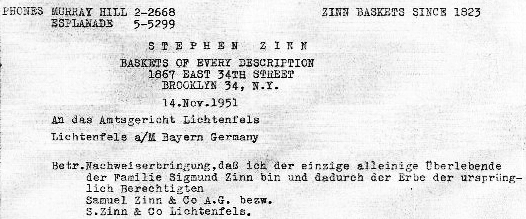
Bertl earned money as a chauffeur, Stephen initially with odd jobs until he successfully tried to put his experience and know-how to use: He opened a basket trading company in Brooklyn, New York - "Baskets of every description". In time, the family regained its prosperity. Stephen maintained business relations with Europe, even with the Lichtenfels "Striwa".
Daughter Lieselotte (now Lilo) married Daniel Webster Braun and moved to New Jersey. Their children Ronald and Linda were born in 1950 and 1952 respectively.
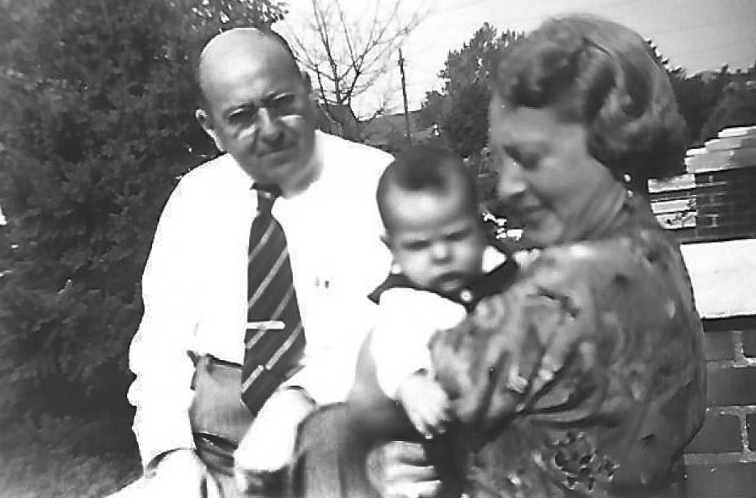 © Family
© Family
Linda describes her grandfather as a quiet and reserved person. Stephen always had candy bars for his grandchildren when he visited his daughter and her family's home in New Jersey. One of his friends owned a candy store, which Stephen frequently visited with his grandchildren, who could pick out whatever they wanted. He was a loving and generous grandfather.
In June 1974, Stephen Zinn died in Brooklyn, Kings at the age of 84.
